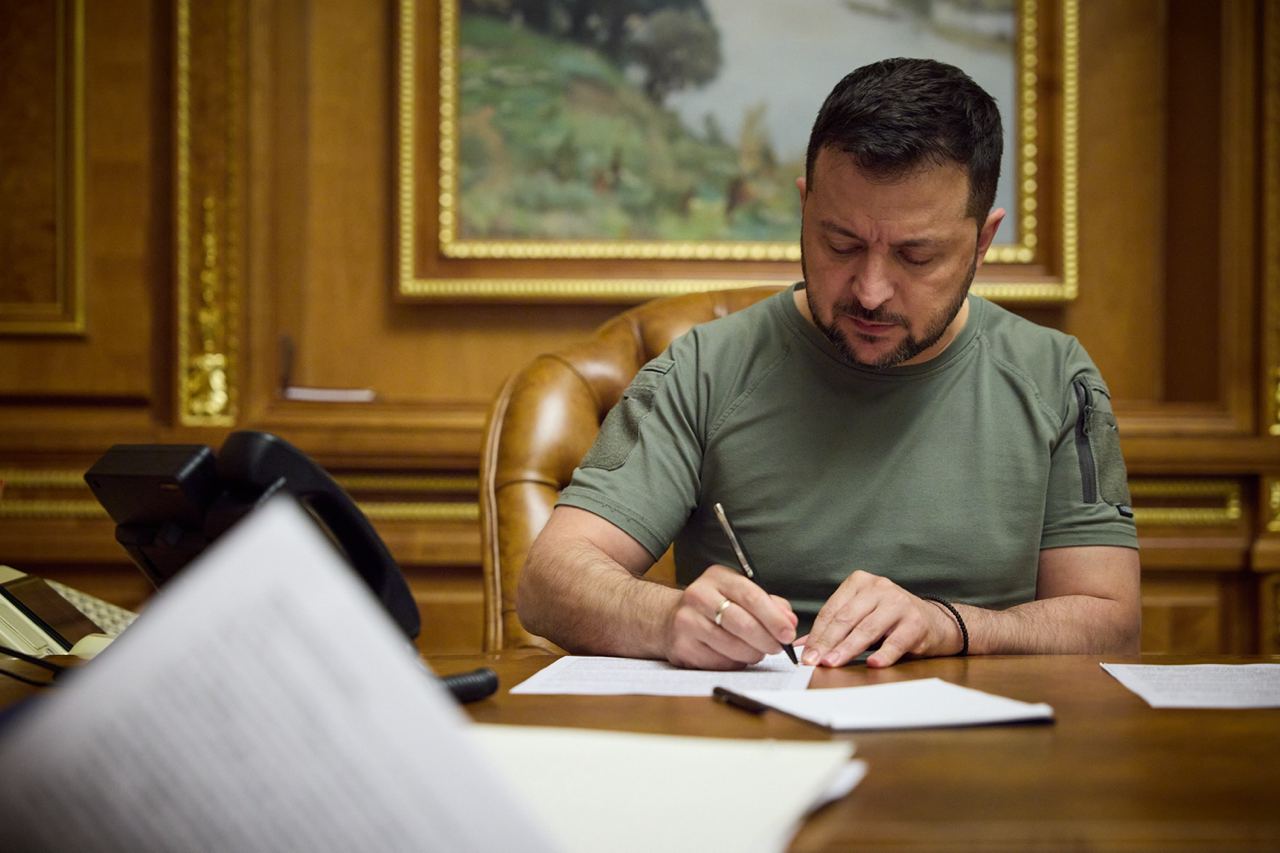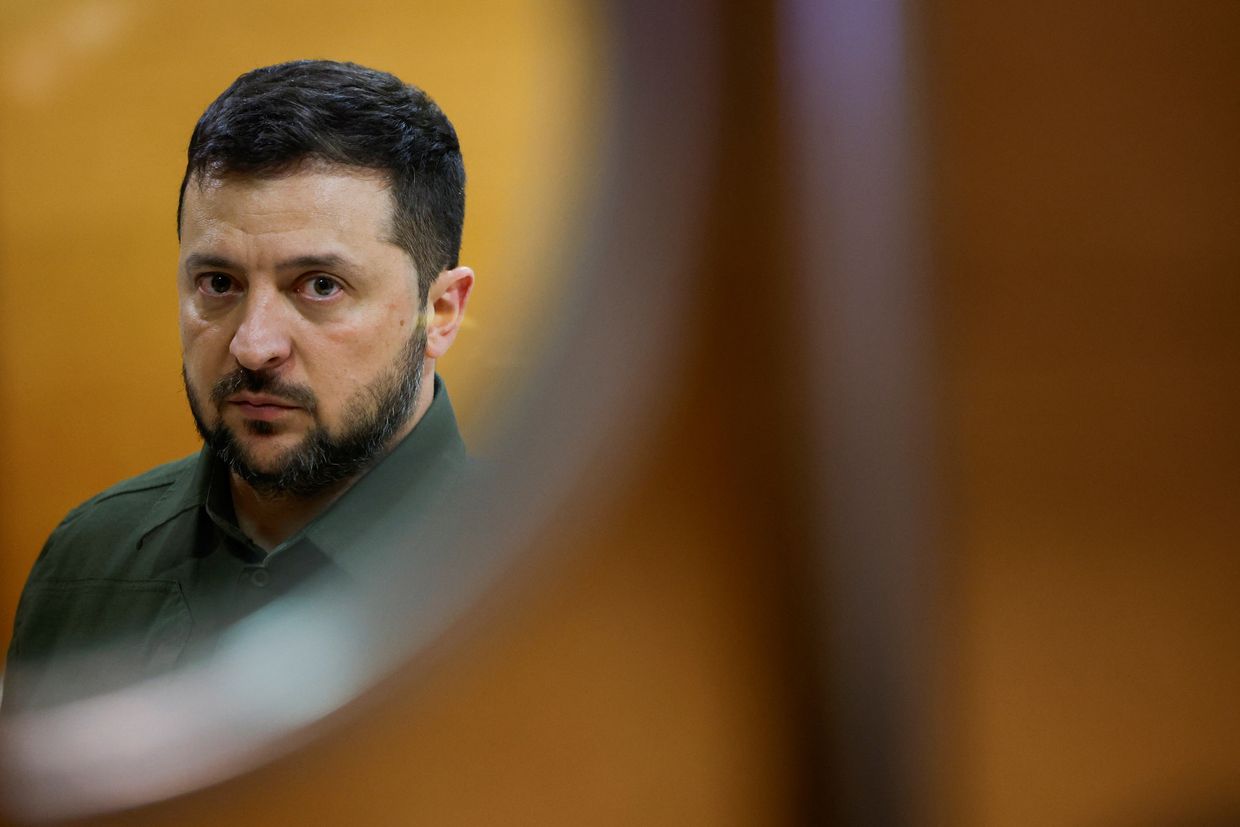MP Yaroslav Zhelezniak: Developments in Ukraine’s parliament on economic reforms, international obligations — Issue 51

Editor’s note: This is issue 51 of Ukrainian lawmaker Yaroslav Zhelezniak’s weekly “Ukrainian Economy in Brief” newsletter, covering events from April 8- 14, 2024. The digest highlights steps taken in the Ukrainian parliament related to business, economics, and international financial programs.
The Kyiv Independent is republishing with permission.
IMF benchmarks in focus
The Parliament adopted in the first reading the draft law on the Bureau of Economic Security that doesn’t meet international requirements.
On April 11, the Verkhovna Rada of Ukraine adopted in the first reading draft law #10439 on restarting the Bureau of Economic Security (known in Ukraine as BEB) after a revision by the Committee on Finance, Tax and Customs Policy.
The adopted text doesn’t include provisions requested by 16 key business associations, nor does it comply with requirements from the International Monetary Fund (IMF) and Group of 7 (G7).
During the consideration of the draft law, the chair of the presidential Sluha Narodu (Servant of the People) faction David Arakhamiia admitted that the text for the first reading doesn’t meet all the necessary provisions. He publicly promised that all the amendments and provisions required within our international agreements will be included in the text for the second reading.
Starting from April 12, lawmakers have 14 days to submit their amendments for the second reading. We expect that the parliament will consider the draft law in the second reading no earlier than during the plenary meetings on May 8-9. However, the exact day will depend on how fast the Committee will be able to revise all amendments and finalize the text.
Lawmakers Yaroslav Zhelezniak and Anastasiia Radina will submit their amendments which are aimed to comply with the final law on the restart of the bureau with the requirements of G7 and the Memorandum with the IMF.
Moreover, we expect a lot of amendments, particularly from lawmaker Zhelezniak, which will prevent the parliament from considering the law too quickly in case all requirements from business and international partners aren't included in the text.
Among key provisions which have to be added for the second reading are the following:
- The selection commission shall submit for appointment only ONE candidate for the position of Director of the BEB.
- Strengthen selection procedures of BEB personnel by providing in the law stages of the competition and other tools for ensuring transparency and a merit-based nature of the process.
- The law should establish the decisive role of independent experts nominated by international partners in the attestation and selection commissions of BES staff.
- Provide in the law definition and elements of integrity, as well as the standard of proof (reasonable doubt) in attestation and recruitment procedures.
- Align labor legislation with the law on BEB concerning grounds for dismissal of BEB employees due to unsuccessful attestation results.
World Bank priorities
The Infrastructure Committee tries to unblock the draft law on railway transport.
The Head of the Committee on Transport and Infrastructure submitted resolutions to reject draft laws #1196 and #1196-1 on railway transport. This step is aimed to unblock an opportunity to submit revised draft law on this issue.
Other key economic issues
The Verkhovna Rada adopted the draft law on mobilization.
On April 11, the Verkhovna Rada adopted the draft law #10449 on mobilization. The consideration of all 4,269 amendments lasted even at night after curfew.
There were around thirty lawmakers in the plenary hall, so the Parliament followed the lead of the Committee and all these amendments were rejected. The Parliament supported only thirty amendments chosen and prepared by the Committee on National Security, Defense and Intelligence and rejected only one regarding the right for demobilization after 36 months of service in the Armed Forces.
The Verkhovna Rada also adopted in the first reading the draft law #10379 with the amendments to the Criminal Code regarding the responsibility for violations of the mobilization law.
The Presidential Sluha Narodu faction (Servant of the People party) can't gather enough votes even for important decisions.
Leaders of the presidential faction Sluha Narodu (Servant of the People) pushed their lawmakers to give 226 votes for the draft law on mobilization and exclusion of the provision on demobilization. However, despite all the efforts from the management of the faction, Sluha Narodu gave only 175 votes for the provision regarding demobilization and only 192 during the final voting for the draft law in whole, while every regular decision requires a minimum 226 votes. This can be evidence of the crisis in the coalition faction.
Four managers have changed in the Bureau of Economic Security during one year, all with a law-enforcement background.
Last week the Cabinet of Ministers appointed a new acting director to the Bureau of Economic Security of Ukraine (known in Ukraine as BEB). Despite the fact that the BEB was designed to be an analytical state body, the new acting manager of the BEB Serhii Perkhun previously worked as a head of the prosecutor's office in Donetsk Oblast. All other acting directors also had the background of law-enforcement such as Tax Police, National Police and State Security Service.
Moreover, according to our information, Perkhun is related to ex-deputy head of the BEB Vitalii Gagach, who in turn was responsible for the pressure on specific businesses through investigations, both for the purpose of political influence and the purpose of illegal material gain.
With the appointment of Serhii Perkhun as acting director, there were no deputies left in the BEB, which is why the previous acting director of the BEB Andrii Paschuk was appointed as the deputy director.
Business complains that the President’s order to protect business doesn’t work.
The business association "Manifesto 42" called on President Volodymyr Zelensky to extend the moratorium on searches carried out by law-enforcement state bodies with the goal of putting pressure on businesses. "Manifesto 42" emphasizes that the audit of criminal cases provided by the presidential decree is either absent at all, or is going according to unknown criteria. Thus, the results of it are unclear, despite the fact that business hoped that the audit will result in closing illegally opened cases against business.















